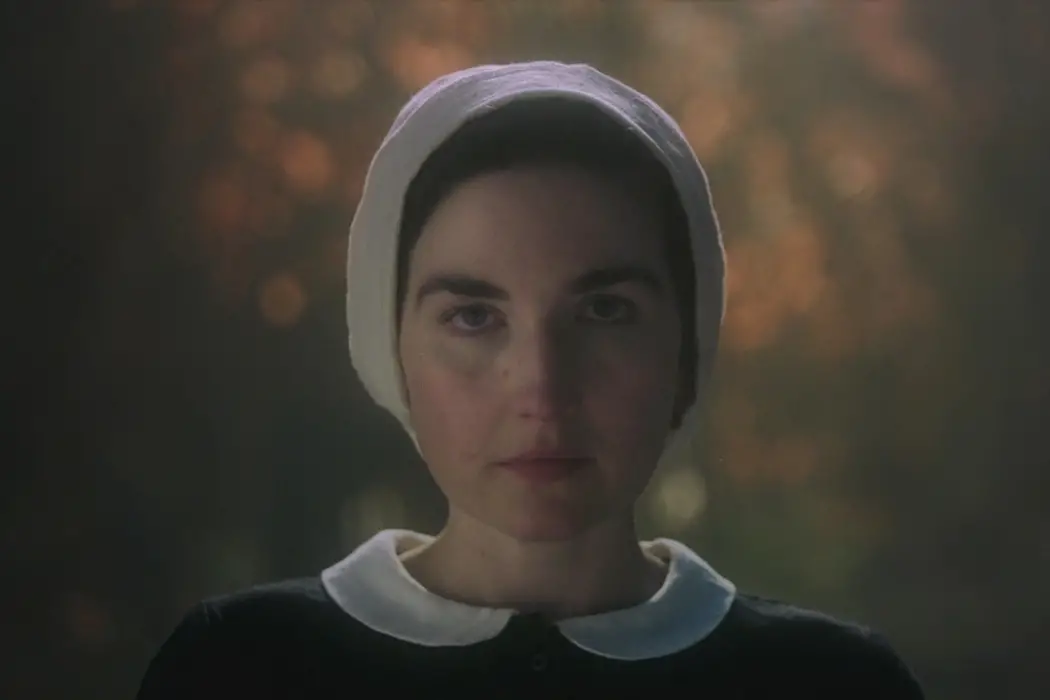LONDON FILM FESTIVAL 2024: WITCHES

All I know is that Oscar Isaac would make a…
Witches starts off like a video essay. Writer, director, editor (and “star”) Elizabeth Sankey talks over clips of films, summarizing what she’ll go onto discuss in greater depth: the cinematic portrayals of witches and their relationship to postpartum anxiety, depression and psychosis. So before the title card, you might think this is going to be a big-screen version of your favorite YouTube culture, film and TV hot-taker. That’s not meant badly. It would’ve been good if it was. But as Sankey brings in all the more established documentary elements – talking heads, dramatizations, in-depth research – it becomes great.
Which Witches?
The talking heads of women who experienced similar postpartum mental health issues – from anxiety to psychosis – are the most moving and most interesting part of the film. But as you get carried away with listening to the emotional stories of these brave women, the link between postpartum mental illness and portrayals of witches begins to feel a bit tenuous.
Just when you begin to doubt the film, the link is soldered together with conviction with the revealing of a book of confessions from real-life “witches” in the 16th and 17th centuries. These real-life “confessions” align so clearly with what we’ve heard from our talking heads. These modern women would have been considered witches a few hundred years ago.
Burning women at the stake because of the fear they’re witches is an extreme but “logical” consequence of taboo. If you think that your thoughts are you, then you’ll believe that’s who you are. If your thoughts are dangerous, you’ll believe you are a danger. But in reality, you aren’t every thought you think – it’s possible you’re just in the midst of a mental health crisis. By showing this link between mental health and witch hysteria, Sankey illustrates specific mental health issues in an arresting and vital way.
“It Was Like I Was in a Film”
Repeated during the talking heads is a form of this phrase: “It was like I was in a film.” These women are describing how the symptoms of their postpartum issues felt and what the treatment looked and felt like. It’s a throwaway line, but it shows how culture shapes thought.
As Sankey describes with sarcastic joy, according to cultural portrayals of mothers, they are overflowing with love and compassion. Their hair (often blonde) flows behind them while they walk. They’re thin, beautiful, endlessly caring, perpetually patient. Diverge from this, and you’re bad. In other words, it’s bad to be a real woman. If you have an intrusive thought about harming your child – worse, if you fear the thought coming true so much you can’t let it go – then perhaps you’re worse than bad, perhaps you’re a witch.

And because there are so few other examples of what real mothers can look like, all you see is the distance between what you’re meant to be like and yourself. That is, until you’re put in touch with other women who are like you, until you find your coven. That “coven” comprises most of the talking heads of this film, each of them interesting in their own way.
Spellbinding Sankey
Such a sensitive subject matter needs to be dealt with sensitively. Sankey is exceptional at this. Intelligent, articulate, thoughtful – likable, from the get-go – she outlines the issues of postpartum mental health so clearly and sympathetically that when she reveals she, at the height of her postpartum depression, had thoughts that she might harm her child, we feel only sympathy.
She makes the film work, while also revealing a darker question: if someone is less likable, less articulate, and they came forward with their issues, would they receive the same care? Sankey doesn’t swerve this question, discussing how many Black women receive less pain relief because they’re perceived to be stronger, and how many brown women aren’t taken as seriously when they explain their issues or believed when they state their credentials.
It may also be down to the sheer resilience of those telling their story or Sankey’s understanding of the “emotional woman” trope, but there seems to be a conscious effort to hold back on emotion from the talking heads. People well up, they get upset, but there’s no sobbing here – and, purposely or not, it has the effect of making the audience more emotional (I welled up twice).
Making Mental Health Specific
“Mental health” language often becomes oversaturated. It’s used platitudinously at work in a tick-box way. And it’s used vaguely. When someone falls into a depression, we’re encouraged to keep it vague: “Ah, it’s my mental health.” But when someone breaks their leg, vagueness is laughable: “Ah, it’s my physical health!”
In Witches, Sankey and her talking heads don’t just name the specific postpartum conditions, but Sankey helps people understand them and engage by analogizing them with how witches were once treated and how they’re now viewed. It isn’t a flippant or obscure link – it’s important, and it clarifies.
Conclusion
Witches is an absorbing exploration of postpartum mental health issues, made with courage and style from writer, director and editor Elizabeth Sankey. Think of a really good video essay, and then make it better – that’s Witches.
Witches premiered at the London Film Festival 2024. It will be available to stream on MUBI from 22 November.
Does content like this matter to you?
Become a Member and support film journalism. Unlock access to all of Film Inquiry`s great articles. Join a community of like-minded readers who are passionate about cinema - get access to our private members Network, give back to independent filmmakers, and more.













